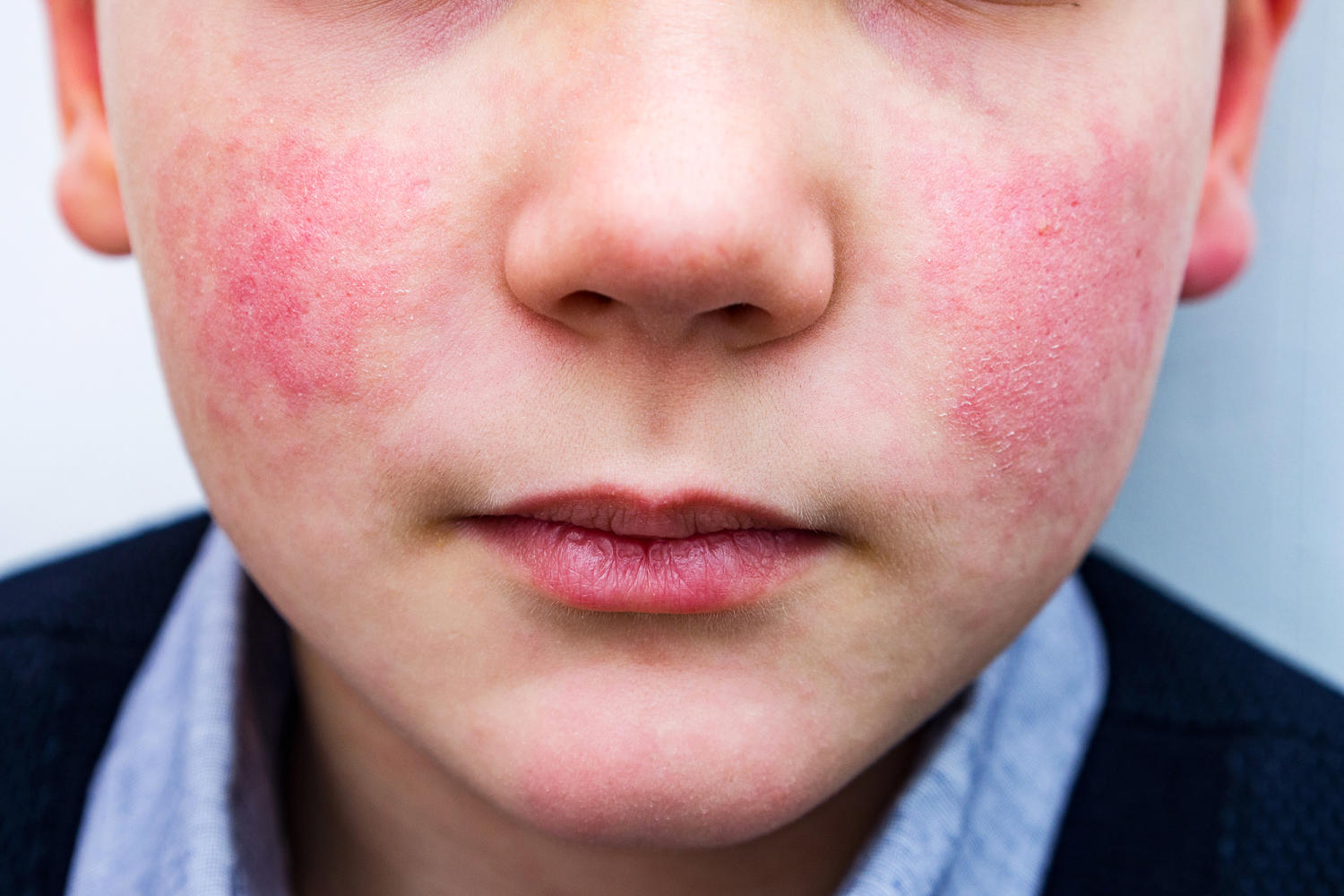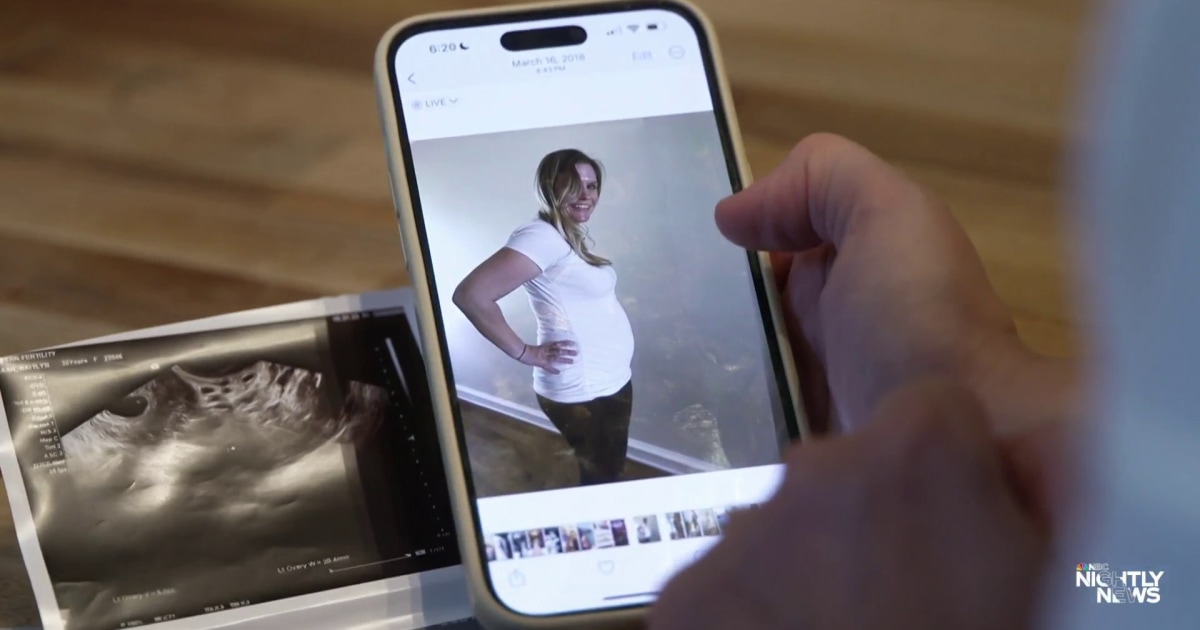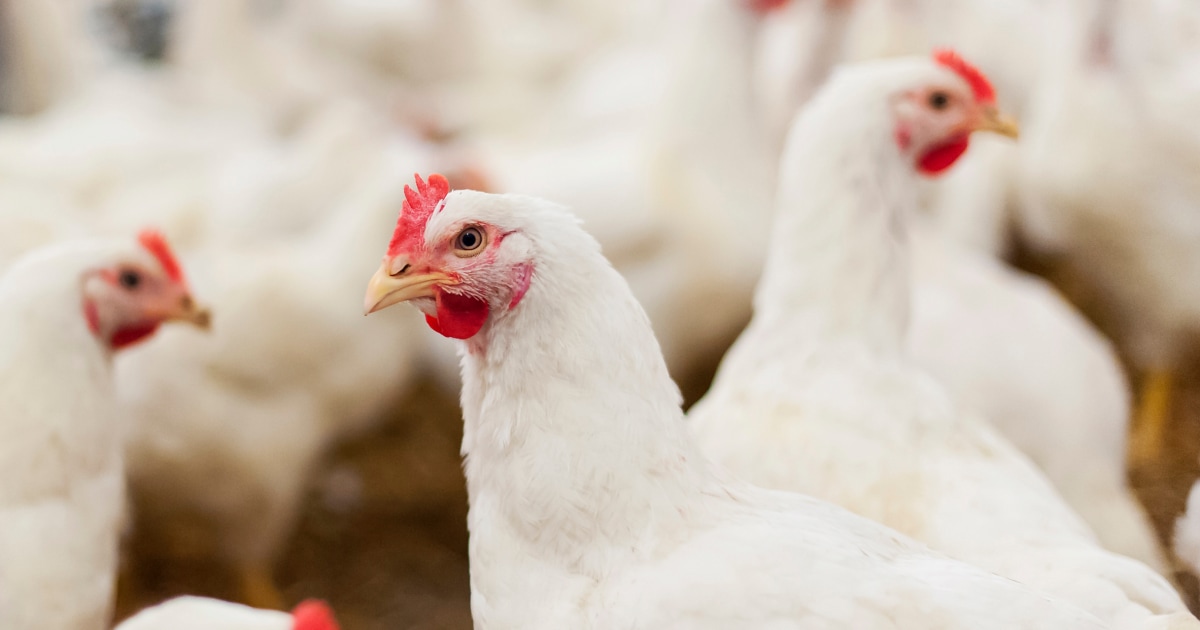Human parvovirus B19, also known as "slapped cheek disease," is on the rise in the United States, especially among young children. The highly contagious respiratory infection is usually mild in healthy people but can cause complications in certain individuals. On Tuesday, the U.
S. Centers for Disease Control and Prevention warning about an increase in parvovirus B19 activity, with the greatest surge in cases of the virus among children ages five to nine. The proportion of people of all ages in the U.

S. with antibodies for parvovirus B19, a sign of recent infection, rose from less than 3% during 2022–2024 to 10% in June 2024, the CDC said. Among children ages five to nine, it increased from 15% to 40%.
Additionally, the CDC said it has received increased reports of clusters of parvovirus B19-associated complications among pregnant people and people with sickle cell disease. The advisory comes after public health authorities in Europe reported unusually high numbers of parvovirus B19 cases in 14 countries during the first quarter of 2024, the agency said. What is parvovirus B19, what are the symptoms to watch out for and how does it spread? Here's what to know about the common viral disease.
Human parvovirus B19 is a common and highly contagious seasonal respiratory infection, Dr. William Schaffner, professor of infectious diseases at Vanderbilt University Medical Center, tells TODAY.com.
Infections are most common in the late spring and summer. The infection is commonly called "slapped cheek" disease due to the characteristic facial rash it can cause, but it may also be referred to as " ." This is because it was fifth on a numbered list of viral childhood illnesses that cause rashes, which clinicians developed in the 1990s, .
"It's very common in children, and that's often where all of us acquire the infection for the first time," says Schaffner. In most people, parvovirus B19 infection is mild or asymptomatic. Many adults in the U.
S. are immune to parvovirus, likely due to a previous unnoticed infection during childhood, . About 50% of adults will have parvovirus B19 antibodies by the age of 20 and about 70% will have antibodies by age 40, the CDC says.
The virus can cause more severe disease in adults without existing immunity, especially women, says Schaffner, and serious complications in certain individuals. These include pregnant people, people who are immunocompromised and people with certain blood disorders, . Human parvovirus B19 is highly transmissible and spreads readily from person to person through respiratory droplets, says Schaffner.
These droplets are produced when an infected person coughs or sneezes, per the CDC. It’s typically transmitted through close personal contact, Schaffner adds. “Children typically spread it amongst themselves and they’re the ones who bring it home (from school) and infect adults,” says Schaffner.
Less commonly, parvovirus can also be transmitted during pregnancy from mother to fetus, or through blood transfusions, per the CDC. Parvovirus B19 infection typically does not cause symptoms, says Schaffer. When symptoms do occur, they are often mild and flu-like or nonspecific.
These include: These flu-like symptoms typically last about five days, per the CDC, during which a person is most infectious. Later in the illness, a very distinctive bright red rash can appear on both cheeks of the face, says Schaffner The "slapped cheek" rash is most common in children. The rash may also spread to the chest, back, torso, arms and legs and become itchy, per the CDC.
The rash caused by parvovirus B19 typically clears up within seven to 10 days, but it can last or come and go for several weeks before eventually going away, says Schaffner. During this time, the rash may become more prominent after a child exercises, after they're exposed to hot temperatures or sun, or after crying, he adds. Adults infected with parvovirus B19 are less likely to develop a face rash and may experience other severe symptoms.
These include joint pain and swelling of the hands, wrists, knees or ankles, says Schaffner. These may look like rheumatoid arthritis, he adds. These joint symptoms can last anywhere from a few weeks to a few months, per the CDC.
"It generally goes away and there’s no lasting injury to the joints, but for a period of weeks, it can be a very unpleasant and troublesome illness," says Schaffner. Most people recover from parvovirus B19 completely. However, it is more likely to cause complications in people who are pregnant, immunocompromised or have underlying blood disorders, and have never been exposed to the virus, according to the CDC.
Exposure to parvovirus B19 typically does not impact a pregnancy, but in some cases, the infection can cross the placenta and infect the fetus, says Schaffner. This can lead to adverse effects such as fetal anemia or a miscarriage, he adds. Averse fetal outcomes occur in about 5% of pregnant women, and the risk is highest if the infection occurs between nine to 20 weeks of gestation, per the CDC.
"The risk to a pregnant person and the baby they're carrying is the most serious by far," says Schaffner. In people who have weakened immune systems and certain blood disorders, parvovirus B19 infection can cause chronic anemia or a severe drop in blood count, per the CDC. These include cancer patients, people with HIV, organ transplant recipients and people with sickle cell disease.
Most people infected with parvovirus B19 will recover completely on their own, the CDC says. There is no specific treatment or antiviral therapy for parvovirus B19. Treatment typically focuses on improving symptoms, says Schaffner.
These may include over-the-counter pain relievers or fever reducers and supportive care. Patients who develop anemia may receive blood transfusions or other therapies, according to the CDC. Although they share the same name, human parvovirus is different from the type of parvovirus which infects animals, such as dogs, .
Parvovirus does not spread from people to their pets or vice versa. Canine parvovirus type 2 (CPV-2) is a highly contagious virus spread between dogs which can cause severe gastrointestinal illness in puppies, . There is no vaccine to prevent parvovirus B19.
Following basic hygiene practices and measures to prevent the spread of respiratory viruses can reduce the risk of parvovirus B19 infection, says Schaffner. These include: Caroline Kee is a health reporter at TODAY based in New York City..



















